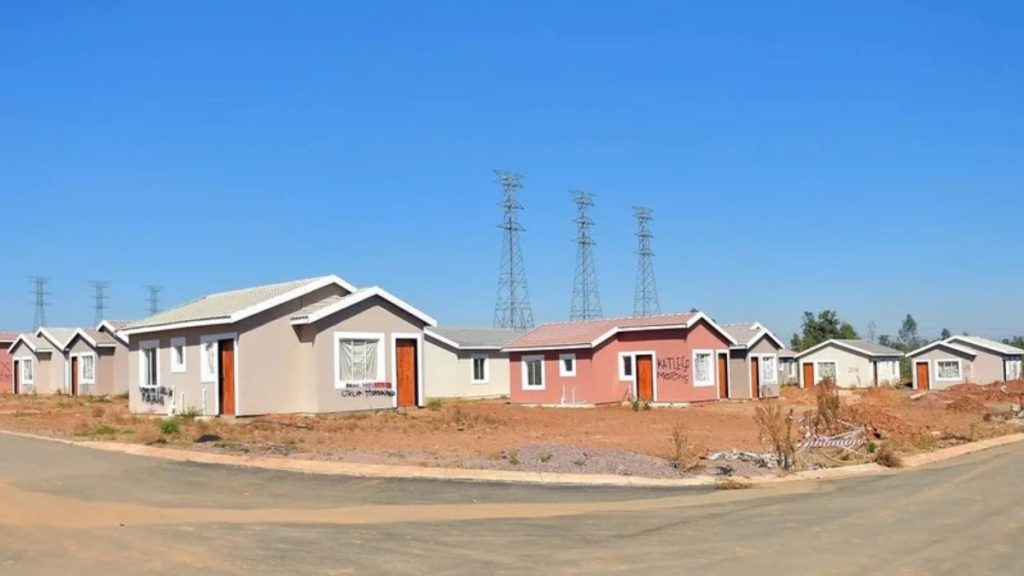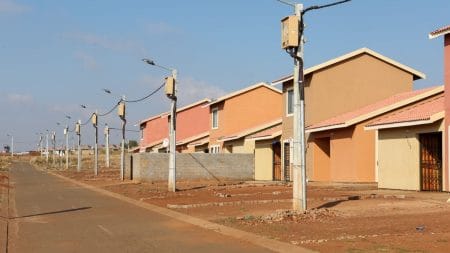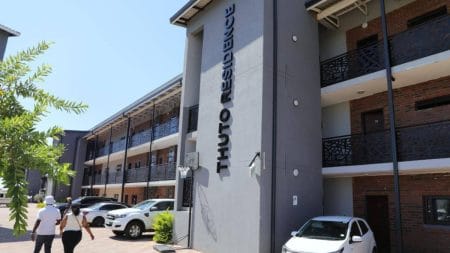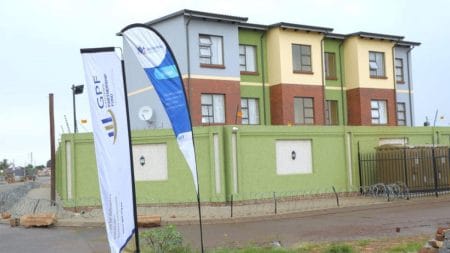RDP housing exists to give low-income South Africans a safe, permanent base. It is not designed for quick resale or profit rentals. If you are thinking about selling or renting an RDP house, the most important thing to understand is the 8-year rule and the pre-emptive right of the state.
This guide explains the rules, shows you how to stay on the right side of the law, and offers practical steps to avoid scams.
What is an RDP house?
An RDP house is a government-subsidised home transferred to an approved beneficiary who meets income and eligibility criteria. The goal is to reduce homelessness, upgrade living conditions, and support vulnerable households. Once transferred, the owner usually receives a title deed, often endorsed with conditions that restrict sale or subletting for a period.
Key points
- Built and transferred under national and provincial housing programmes.
- Allocated to approved beneficiaries who have not owned a formal home before.
- Title deeds may carry conditions that limit sale or rent for a fixed period.
The legal backbone you need to know
Understanding the basic laws will save you money and stress.
- Housing Act 107 of 1997 (sections 10A and 10B). These sections introduce the 8-year restriction and the state’s pre-emptive right. During this period, an RDP owner cannot sell or otherwise dispose of the property unless it is first offered back to the state and written consent is granted.
- Title deed endorsements. Many deeds are stamped with a condition reflecting the 8-year restriction and the pre-emptive right. This endorsement “travels” with the property until it lapses or is formally waived.
- Rental Housing Act 50 of 1999. If and when you are allowed to rent out the house, this Act governs deposits, inspections, leases, and tenants’ rights.
- Prevention of Illegal Eviction Act (PIE). This Act controls evictions and requires due process through the courts.
The 8-year rule in plain language
Within the first 8 years
- Selling is prohibited unless you have written consent from the provincial Human Settlements authority and you offer the house back to the state under the pre-emptive right.
- Subletting or renting for profit is not allowed. Beneficiaries are expected to live in the property with their households.
- If you ignore the rule the sale can be declared invalid, the state can take back the property, and you risk eviction or other legal action. Buyers who “take a chance” also lose protection because the transfer is unlawful.
After 8 years
- The restriction typically lapses or can be waived.
- Selling becomes possible through a conveyancer, with a normal Deeds Office transfer.
- Renting can be considered, but you must comply with the Rental Housing Act (written lease, inspections, deposit interest) and you should confirm that no special condition remains on your title deed.
Bottom line: Treat the first eight years as a hard guardrail. After that, act like any responsible owner, use a conveyancer for a sale and follow rental law for leases.
Why these restrictions exist
The RDP programme tackles poverty and inequality by giving families a foothold in the formal housing market. Without restrictions, early sales and profit rentals can push beneficiaries back into informal settlements, create a grey market, and divert public housing away from those in greatest need.
The 8-year rule and pre-emptive right protect the integrity of the programme and the public investment behind it.
Selling an RDP house legally (step-by-step)
Use this process if your 8-year restriction has lapsed or you have written consent and a waiver.
- Check your title deed
Ask a conveyancer to pull a Deeds Office printout. Confirm who owns the property, the exact property description, and any endorsements (like the 8-year condition or a pre-emptive clause). - Confirm the timeline
Verify the date of transfer on the deed. If it is within 8 years, you must follow the province’s pre-emptive process and obtain written consent. If it is older than 8 years and the endorsement has lapsed or been waived, you can proceed with a normal sale. - Get provincial confirmation (if needed)
Where an endorsement still appears on the deed, your conveyancer should request a formal waiver or follow the buy-back procedure set by the province. - Sign a sale agreement prepared by a conveyancer
Never rely on a handwritten receipt or private promise. Property transfers in South Africa must be lodged and registered in the Deeds Office by a conveyancer. - Avoid red flags
- Cash-only deals with no conveyancer.
- “Move in now, title later.”
- Prices that seem far below typical local levels.
- Sellers unwilling to show ID or the title deed.
Walk away and report suspicious conduct to your municipality or the Department of Human Settlements.
- Complete transfer properly
Your conveyancer will manage municipal rates clearance, the Deeds Office process, and registration of the new owner.
Buying an RDP house safely
If you are a prospective buyer, do not touch the deal until you are comfortable with the paperwork.
- Insist on proof of 8+ years since the original transfer or a written waiver from the province.
- Verify the deed by asking the conveyancer to pull the latest Deeds Office record showing the current owner and endorsements.
- Check for estates and heirs. If the owner has died, ask for Letters of Authority or Executorship before you sign anything.
- Do not pay deposits in cash to private individuals. Use the conveyancer’s audited trust account.
- Confirm municipal accounts and any housing-related debts are in order before transfer.
Tip: If a price looks unbelievably low, there is usually a reason. It may be within the restricted period, carry an active endorsement, or be subject to a provincial buy-back process.
Renting out an RDP house
During the first 8 years
- Treat profit rentals as off-limits unless you have explicit written permission from the provincial housing authority. Subletting is commonly treated as a breach, and your house can be taken back.
After 8 years
- You can consider renting if no restrictions remain on the deed. Then the Rental Housing Act applies, like any other residential lease:
- Use a written lease that sets out names, address, rent, deposit, and term.
- Do ingoing and outgoing inspections with checklists and dated photos.
- Keep the deposit in an interest-bearing account and provide statements.
- Keep a record of repairs, receipts, and communications.
- Expect scrutiny if the arrangement appears exploitative. Keep it fair, documented, and compliant.
Common scams and how to avoid them
“No lawyers needed, pay and move in.”
False. Only a registered conveyancer can transfer ownership at the Deeds Office.
“Under R150,000, title later.”
Classic red flag for restricted or disputed properties. Verify the deed and the transfer date first.
“Foreign buyer welcome, no questions asked.”
Be cautious. RDP stock exists to house South Africans in need. If a sale depends on ignoring eligibility or deed conditions, you are inviting trouble.
“Rent it out. Nobody checks.”
Enforcement may be uneven, but the law still applies. Breaches risk eviction and loss of money.
Protect yourself
- Speak to your local municipal Housing Department or the provincial Human Settlements office before paying a cent.
- Use a conveyancer from day one.
- Keep everything in writing.
FAQs
Can I sell in under 8 years?
Not without written consent from the province and a formal offer back to the state under the pre-emptive right. Without that, any private sale can be set aside.
Can I rent it out to family during the 8-year period?
Treat any rent-for-profit arrangement as a breach unless you have written approval. When in doubt, ask the provincial office in writing.
What if I already signed a private sale agreement?
See a conveyancer immediately. If it breaches the 8-year rule, the deal can be declared invalid and you may lose money or possession.
How do I prove the 8-year period?
The title deed shows the original transfer date. Your conveyancer can pull Deeds Office records that also show endorsements and releases.
What documents must a buyer see?
- Seller’s ID and proof of address.
- Title deed and a fresh Deeds Office printout.
- Proof the 8-year restriction has lapsed or been waived.
- Municipal clearance or latest statement.
- A sale agreement prepared by a conveyancer.
Safe-steps checklist
If you are the owner (seller)
- Check the title deed for endorsements and transfer date.
- If within 8 years, follow the pre-emptive and consent process.
- Use a conveyancer for all paperwork and transfer.
- Keep all approvals and waivers in writing.
If you are buying
- Verify 8+ years or a waiver before you sign.
- Do not pay cash to individuals. Use the conveyancer’s trust account.
- Confirm municipal accounts and, if relevant, estate documents.
- Walk away from “no lawyer” or “title later” deals.
If you plan to rent (after restrictions)
- Use a written lease that aligns with the Rental Housing Act.
- Do entry/exit inspections, keep photo evidence.
- Hold the deposit in an interest-bearing account.
- Keep a clear paper trail for rent and repairs.
Who to contact for help
- Department of Human Settlements: National hotline and provincial offices can verify restrictions and process waivers.
- Your local municipal Housing Department: Day-to-day guidance on RDP ownership queries.
- Rental Housing Tribunal: Advice and dispute resolution for rental issues.
- Legal Aid South Africa: Free or subsidised legal help if you qualify on income.
- A reputable conveyancer: For title checks, waivers, and Deeds Office transfers.
Check also: Gauteng Housing Department Issues Warning on RDP House Sales
An RDP house is a lifeline, not a trading chip. For the first eight years, treat sale and profit rental as off-limits unless the province gives written permission and the house is offered back to the state. After that, you can sell through a conveyancer and, if no restrictions remain, rent under the Rental Housing Act. Wherever you are in the process, put the deed, the dates, and proper legal steps first.










